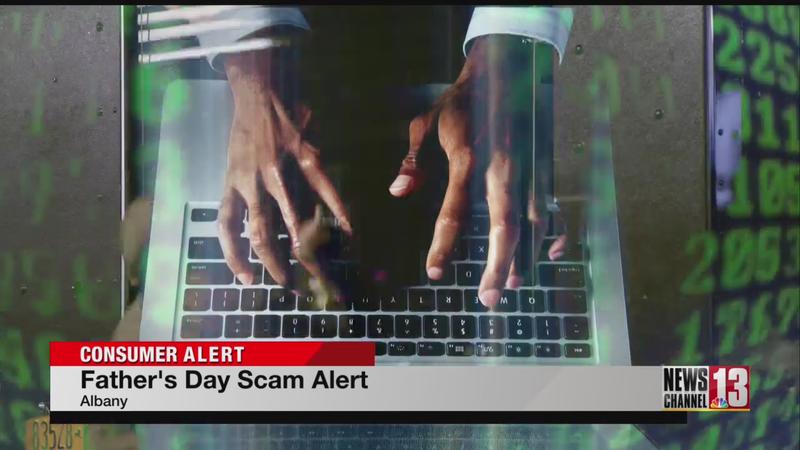Beware of Father’s Day scams
[anvplayer video=”5037141″ station=”998132″]
Financial crime experts are warning about a couple of scams targeted at dads ahead of Father’s Day.
First, scammers are using e-cards as a way to get personal information and cash.
"People should really take a quick scan over the email, because what we’re seeing is a lot of these don’t originate here in the United States," said J. Michael Skiba, also known as "Dr. Fraud."
Skiba is an international financial crimes expert based out of Albany. He says there are things consumers can do to protect themselves.

"If it’s a scam, it’s probably going to say ‘Dear sir or madame’. But if it’s a real card, I’m sure they’re going to have your name," said Skiba.
[anvplayer video=”5037183″ station=”998132″]
Another scam making the rounds is fake notices about Father’s Day packages either having arrived or being ready for delivery. Skiba says scammers pretend to be UPS or FedEx, hoping you’ll click on a link that contains a virus or give them personal information or money.
Here are his tips for protecting yourself from both scams.
E-Card Father’s Day Scams:
- Right-click the link and put it in Google. This will filter out fake websites.
- A big red flag is if you have to enter some info to open the card. They are trolling for PII.
- A link or attachment that ends in a .exe, which indicates an execute command and could be a virus.
- Look to see if the senders name is clearly visible and make sure you know them. Scammers will use "secret admirer" or "friend".
- For full 100% security, all reputable card companies have a homepage. Go to their homepage and click on the code, this is the safest way to open a card. American Greetings, Hallmark etc.
Package Delivery Scams:
- "Your package has been delivered". Use power of persuasion – curiosity, missing out, sense of urgency.
Prevention:
- Look for root domain name. It often differs slightly from a legit name: USPS, etc.
- Hover over links and see where it will take you.
- Look for misspellings, grammar etc…
- Hop out of the email and cross-check through the "legitimate" website and reference #’s.
Skiba says even the best intentions can lead to an accidental wrong move. If you think you’ve been a victim of an online scam, he says you should call your bank and notify your credit card company as soon as possible.
"Watch your credit cards very, very closely. You might even consider freezing your credit," said Skiba.
[anvplayer video=”5037184″ station=”998132″]